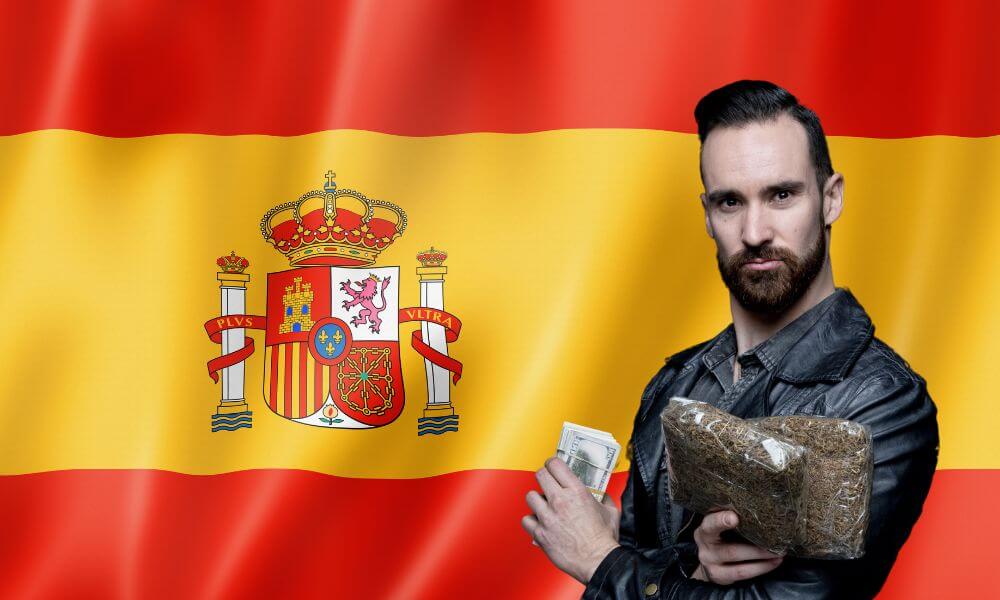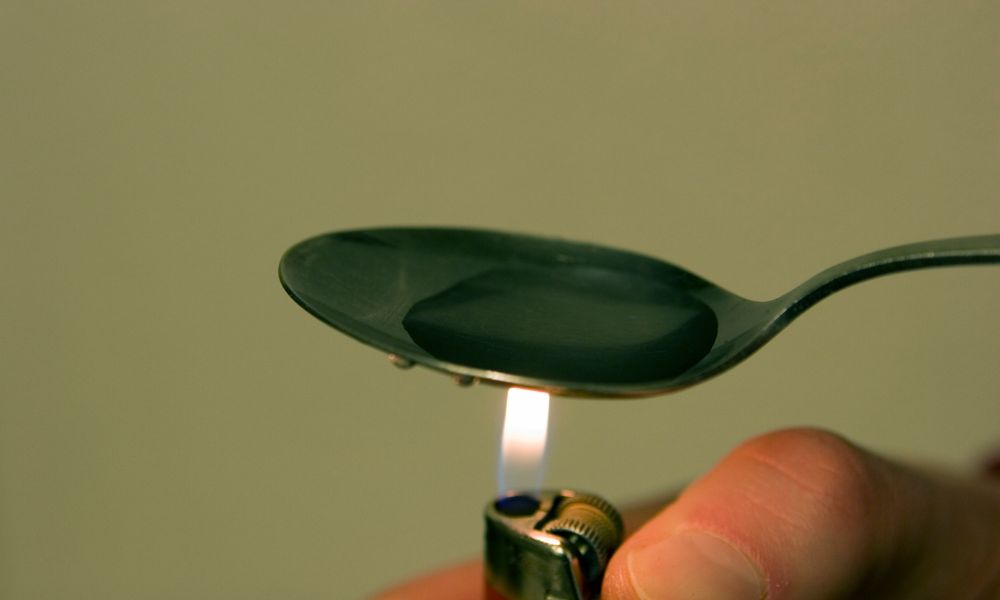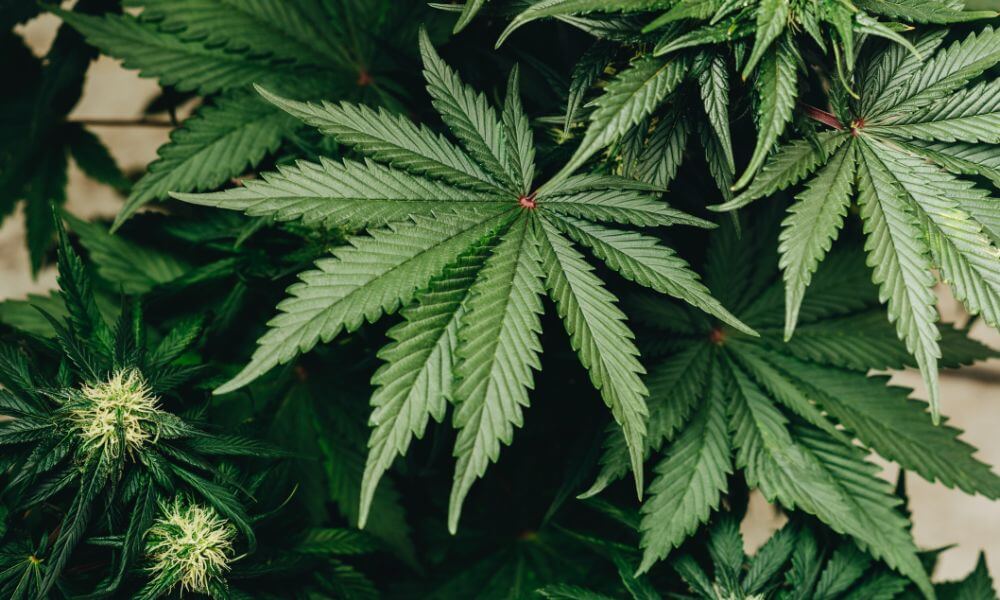Anything that sits outside the realm of strictly legal is likely to attract a great deal of slang lingo in any language.
Drugs are no exception to this rule, and you’ll know this if you’re an English speaker.
Whether you’ve ever touched a drug in your life or not, you can probably name a couple of slang terms for different drugs off the top of your head.
Today, we’re going to look at how the Spanish colloquially refer to their drugs.
Let’s get started.

[adinserter block=”1″]
Micropuntos
Starting off we have the odd sounding micropuntos.
This is a colloquial Spanish term referring to the psychedelic drug LSD. In English, this drug is colloquially known as acid.

This term literally means “micro dot”, and is often used to mean a very small dose of LSD.
This is called a microdose.
However, the “dot” could also be a reference to the fact that LSD comes in the form of small “dots” of paper, or “blotters”.
Our earliest record of this term comes from 1995, though it probably isn’t much older in use than this.
Grifa
Without doubt, the most popular “casual” drug throughout the world is some form of the cannabis plant.

Grifa is our first slang term on this list for weed.
It has the sense of “dope”, which is another very broadly used slang term for cannabis.
It comes from the literal Spanish term which means “intoxicated”, being a reference to the mental state that some grifa will leave you in.
It’s used widely in Spain, Mexico, and even places like Honduras.
The sense of intoxicated has been in use since the 18th Century, so it’s very hard to tell when it took on this meaning.
Goma
Next we have another slang term for cannabis, though not as widely used.
This one is of somewhat dubious origin, and seems to be more commonly used in Central America than anywhere else.

In all likelihood, it is simply a variation of grifa or grifo.
There’s no direct cognate in standard Spanish to explain it.
So, its origin will likely remain mysterious.
Mierda
You may be familiar with this Spanish term, so I’ll spare you the translation.
However, outside of its usual use, this term has also come to be used to describe a wide range of drugs.
However, the difference is that it describes drugs of low quality.
It’s possible this one originated in the drug trafficking scene in Latin America, at the end of the 20th Century.
Given that it’s just a standard Spanish word given a new meaning, it is again very hard to trace its origin with much precision.
Caballo
Caballo is an interesting one, as it seems to have come through many variations to take on its modern meaning.
Of course, again, the word itself literally means horse in standard Spanish.
However, in slang, it is used to refer to heroin.

Since at least the 1960s, this slang term has been in use. It is probably due to the fact that it is called horse in English due to the letter H.
Thus, it came to take on the same slang meaning in Spanish, too.
Jaco
Following on from that, next we have jaco, which is another word for a certain kind of horse.
Naturally, this has also come to take on the slang sense of heroin.
This likely occurred sometime after the 1960s, when the Spanish began to use more and more terms for horse to mean heroin.
Maria
Depending on where you are in the Spanish speaking world, the most likely term you’ll hear used to refer to cannabis is maria.
This literally just means Mary, and can refer to both hashish and marijuana. It’s broadly understood virtually everywhere Spanish is spoken.

This, again, is a Spanish translation of English language slang.
Weed in English is often colloquially called Mary Jane, or MJ.
This is supposed to have originated from jazz slang, though we aren’t completely sure.
In any case, it seems to have passed to Spanish slang in the early 1950s.
Porro
There are almost always different slang terms for drugs in different stages.
Porro is another slang term for cannabis, but specifically a joint.
This is when it is rolled up and ready to smoke. “He’s smoking a porro,” for example.

This too seems to be a relatively recent term, only entering the common lexicon sometime during the 1960s.
This was after all when drug culture in the western world was taking hold.
Etymologically, it’s not really clear, except that it might be related to the word for leek, due to the shape.
Pastis
Next, we have pastis, which literally means “pills”.
Pill, in English and Spanish, is a somewhat broad term used to describe synthetic drugs in pill form.
This is also the case in Spanish. It is typically used to refer to ecstasy pills, although it can mean other things, too.
The origin is fairly intuitive, though when it took on this meaning is harder to say.
Particularly in the disco scene of the 80s and 90s, when ecstasy was very popular, this slang became cemented in the language.
Costo
Finally, we have costo, a slang term which refers to hashish.
This is a form of cannabis made by compressing and processing parts of the plant, particularly the flowering buds.
It’s a form of dried resin, colloquially referred to as costo in Spanish.
It’s possible this is a corruption of chocolate. Hashish is brown like chocolate.
But we aren’t really sure where this term comes from.
For the most popular and widely used drugs, there are naturally many slang terms to describe them.
But equally, just about any drug tends to take on a “street name,” if only because it is first distributed illegally before being described by academics.
In any case, these are some of the most widely used slang terms for drugs in the Spanish language.
[adinserter block=”1″]

